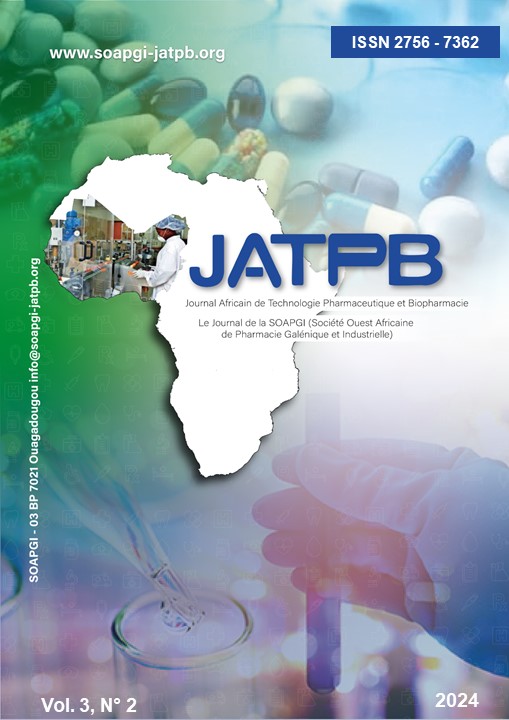ASSESSMENT OF THE HEALTH QUALITY OF PACKAGED WATER MARKETED IN FOUR DEPARTMENTS OF SOUTHERN BENIN
DOI:
https://doi.org/10.57220/jatpb.v3i2.188Keywords:
Packaged water, Sachet water, Bottled water, Water production unitsAbstract
Water is a vital commodity for human beings, but it is also a source of many water-borne diseases. In Benin, as lifestyles have changed, the packaging of water has spread rapidly, with many production units escaping the health controls of the authorities, putting in danger the health of consumers. A total of 70 production units, including 64 units of bag packaged water and 6 units of bottled water in four departments of southern Benin, were inspected and samples of batches from recent production were taken for physicochemical and microbiological tests. Analysis of the results revealed a number of contamination risks, including the absence of mandatory carbon filters (64.1%), UV lamps (42.2%), presence of water leaks (14.1%) in the water production circuit and lack of hygiene (34.4%). The laboratory analyses reported that the pH of the water samples varied between 3.94 and 7.74, with 48.6% of non-conformity (pH standard: 6.5-8.5). Microbiological tests revealed contamination of packaged water by common germs (67.1%; n=47), total coliforms (7.1%; n=5) and Escherichia coli (1.4%; n=1). This poor microbiological quality concerned both bag packaged water samples (n=44 out of 64) and bottled water samples (n=3 out of 6). These results show the need to step up monitoring of water conditioning facilities in order to ensure consumer health safety.
Downloads
Downloads
Published
How to Cite
Issue
Section
License
Copyright (c) 2024 AGBOKPONTO Engelbert , Mohamed M. Arêmou DAOUDA, YEMOA Loconon Y. Achille

This work is licensed under a Creative Commons Attribution 4.0 International License.






